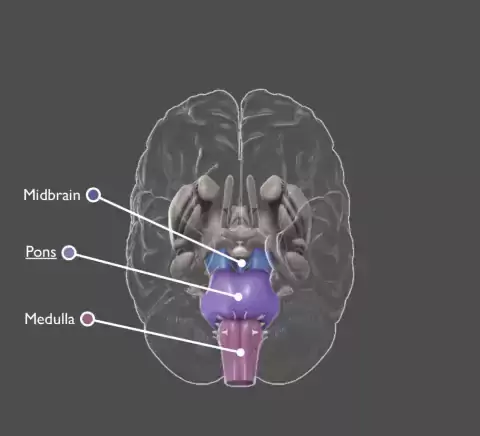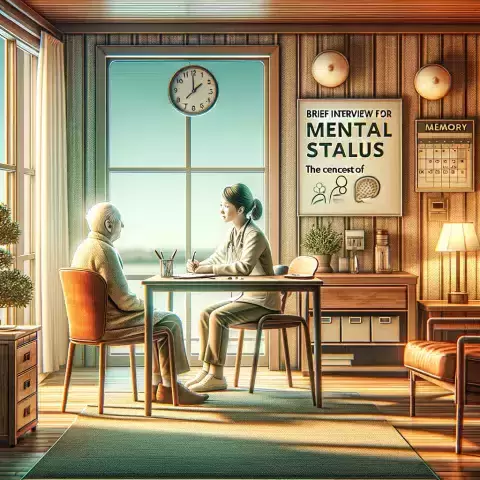Understanding and Coding MDS 3.0 Item E0100B: Psychosis - Delusions
Understanding and Coding MDS 3.0 Item E0100B: Psychosis - Delusions
Introduction
Purpose: Delusions, a symptom of psychosis, are false beliefs that can seriously affect a resident’s mental health and behavior. MDS Item E0100B focuses on identifying whether a resident has experienced delusions—fixed, false beliefs that are not based in reality—over the past two weeks. Accurately coding this item helps staff recognize serious mental health issues, such as schizophrenia, delirium, or dementia, and ensures timely interventions that improve the resident’s well-being.
What is MDS Item E0100B?
Explanation: MDS Item E0100B is part of Section E: Behavioral Symptoms. It asks whether the resident has experienced delusions, which are defined as false, firmly held beliefs that persist despite clear evidence to the contrary. Examples include believing they are in danger when they are not or believing they possess special powers. Recognizing the presence of delusions is critical for evaluating the resident’s mental health and guiding appropriate interventions, such as medication adjustments, psychiatric evaluations, or increased supervision.
Guidelines for Coding MDS Item E0100B
Coding Instructions: To code MDS Item E0100B, staff must determine whether the resident has experienced delusions over the past two weeks. These delusions may be related to false beliefs about their surroundings, identity, or the intentions of others. The coding is binary:
- 0 - No: The resident has not experienced delusions.
- 1 - Yes: The resident has experienced delusions.
Example Scenario: If a resident firmly believes that staff members are plotting to harm them, even though there is no basis for this belief, and this has been observed or reported by staff during the past two weeks, you would code E0100B as 1 - Yes. If there have been no such reports or observations, the appropriate code would be 0 - No.
Best Practices for Accurate Coding
Observation and Listening: Staff should pay attention to the resident’s conversations and behaviors that may indicate delusions. For example, residents may express paranoia, fear of persecution, or grandiose beliefs, such as thinking they have special powers or control over others.
Documentation: Thorough documentation is essential. Record specific examples of the resident’s delusional beliefs, noting how these beliefs are expressed and how they affect the resident’s behavior. This documentation supports accurate coding and helps inform the resident’s care plan.
Communication: If delusions are observed, share this information with the interdisciplinary care team immediately. Delusions may indicate a need for changes in the resident’s treatment plan, including psychiatric evaluation or medication management to address psychosis.
Training: Provide regular training for staff on recognizing and differentiating delusions from other cognitive or mood-related symptoms, such as hallucinations or confusion. This ensures accurate identification and coding, leading to timely mental health interventions.
Conclusion
Summary: MDS Item E0100B is essential for identifying residents who may be experiencing delusions, a serious symptom of psychosis. Accurate coding based on staff observations ensures that delusional thinking is recognized and addressed early, allowing for appropriate interventions that improve the resident’s mental health and overall well-being.
Click here to see a detailed step-by-step on how to complete this item set
Reference
This guide is based on the CMS's Long-Term Care Facility Resident Assessment Instrument 3.0 User’s Manual, Version 1.19.1, October 2024, Page E-5.
Disclaimer
Please note that the information provided in this guide for MDS 3.0 Item E0100B: "Psychosis - Delusions" was originally based on the CMS's Long-Term Care Facility Resident Assessment Instrument 3.0 User’s Manual, Version 1.19.1, October 2024. Every effort will be made to update it to the most current version. The MDS 3.0 Manual is typically updated every October. If there are no changes to the Item Set, there will be no changes to this guide.
This guidance is intended to assist healthcare professionals, particularly new nurses or MDS coordinators, in understanding and applying the correct coding procedures for this specific item within MDS 3.0. The guide is not a substitute for professional judgment or the facility’s policies. Additionally, this guide refrains from handling personal patient data and does not provide medical or legal advice.










